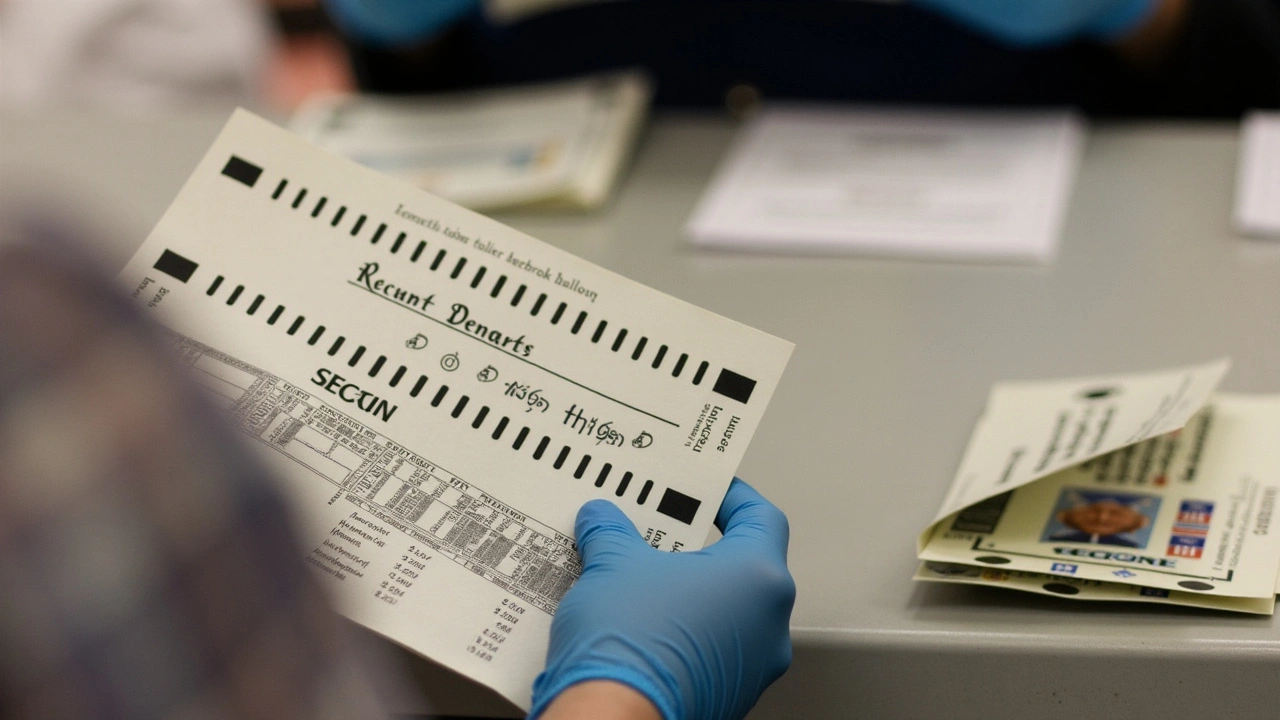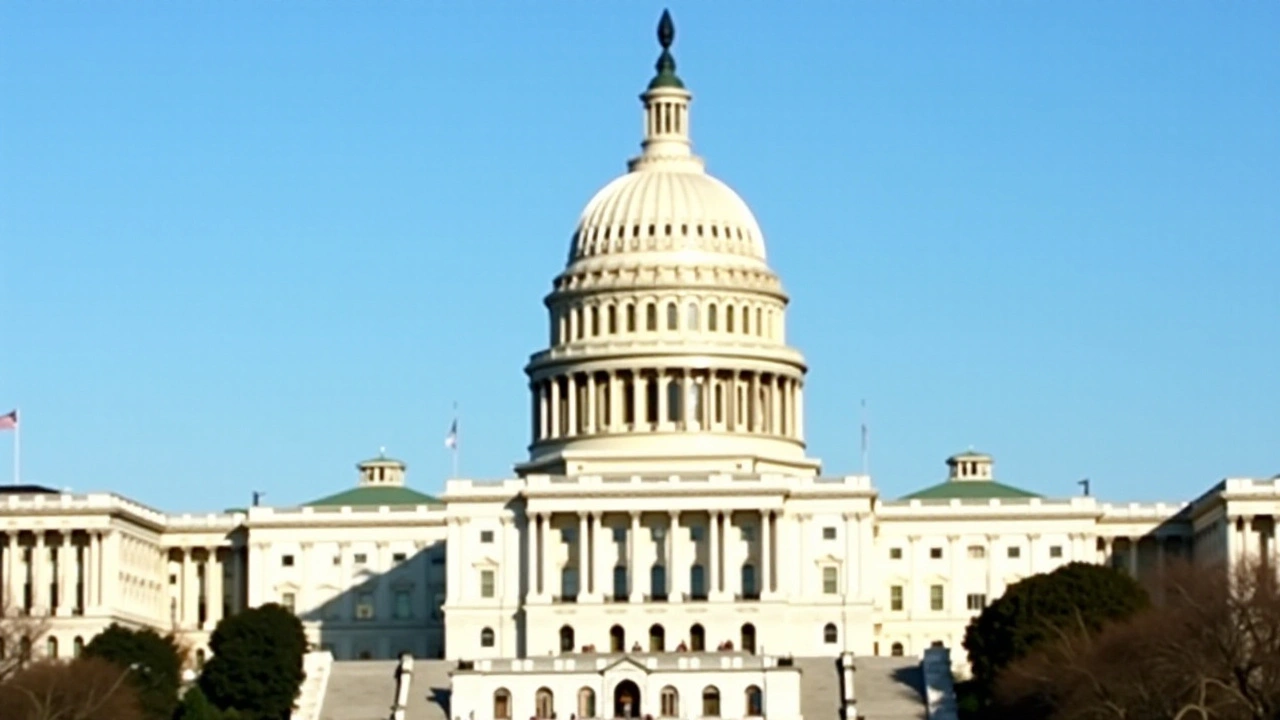Introduction to the 2024 US General Election
The anticipation surrounding the 2024 US General Election was palpable, with political pundits on edge as voters headed to the polls on November 5th to cast their ballots. The stakes were high, as the outcomes would significantly influence the direction of America's leadership, policies, and its role on the global stage over the next several years. Key races in the Senate sought to decide whether the Democrats could retain their slim majority or if the Republicans would seize control, while the House of Representatives saw Republicans aiming to protect their fragile edge in a 435-member chamber.
Significance of the Senate Races
Thirty-four of the 100 seats in the Senate were on the line during this critical election period. As the upper chamber of Congress, the Senate holds significant authority in confirming presidential appointments, ratifying treaties, and legislating on crucial national issues. For the Democrats, maintaining a majority was vital to support President Biden's agenda and ensure that judicial appointments could be processed with less opposition. Meanwhile, Republicans were keen on regaining control, which would afford them a more substantial influence over government decisions and legislation. The importance of Senate races in battleground states, which have traditionally been pivotal in swinging Congressional power, cannot be overstated. The Democrats were particularly focused on defending their seats in these fiercely contested arenas.
Toss-Up Races in the House of Representatives
The political climate in the House was equally tense, with Republicans holding onto a narrow majority. With a full slate of 435 seats up for grabs, every district race mattered. Toss-up races, where neither party had a clear advantage, became focal points. These contests demanded attention from national party leaders who funneled resources and campaign efforts into districts that could tip the balance of power. The battle for the House was not just about majority control; it was also about setting the legislative agenda for key issues such as healthcare, taxation, and immigration reform. The outcome could decide the legislative capabilities of either party to enact policies reflecting their platforms.
Gubernatorial Races: State Leadership in Focus
While the spotlight was often on Congressional races, gubernatorial contests played a crucial role in shaping state policies and leadership. Governors wield significant influence within their states, overseeing budgets, appointing officials, and implementing policies that resonate locally but also echo on the national level. These elections influenced decisions on key issues such as education, healthcare, infrastructure, and state taxation. With numerous states featuring in high-stakes governors' races, the potential shift in partisan control could mean substantial changes in regional legislative priorities and governance styles.
The Role of Ballot Initiatives
Apart from determining political leadership, many states featured ballot initiatives that allowed voters to weigh in directly on specific issues. These initiatives ranged from legalizing marijuana and raising the minimum wage to voting reforms and healthcare policies. Crucial legislative changes often begin through such grassroots efforts, making them a vital component of the electoral process. They provide insights into public sentiment on specific issues that can influence legislative agendas, regardless of which party holds power.
Projected Outcomes and Political Implications
While CNN projections suggested a Republican victory in the Senate, the final tally and its implications were yet to unfold fully. A Republican-controlled Senate could mean substantial obstacles for President Biden's agenda and spur significant challenges in enacting democratic policies. On the flip side, Republican gains would empower their legislative priorities and hold the Administration accountable by intensifying oversight activities. In the House, the dynamics were no less critical, with many races remaining uncertain and capable of swinging the chamber's control. As voters await final results, these projections sparked intense political discourse and strategizing within both parties as they look towards 2025 and beyond.

Final Thoughts
The 2024 US General Election was more than just another electoral exercise; it was a defining moment for America's political trajectory. The decisions made by millions of voters would resonate across the nation and the globe, shaping the future of governance, policy direction, and international relations. As the dust settles and results are confirmed, the true impact of this election will become clearer, setting the stage for forthcoming political battles and legislative agendas. What remains consistent, however, is the vibrant and dynamic nature of the American democratic process, reflective of the nation's values and its commitment to representative governance.


Josh Tate
November 7, 2024 AT 02:40I feel like the whole election overview just shows how every little race can chang the vibe of the whole nation. It's crazy how a few swing states dictate the flow. I kinda wish we had more focus on local issues, not just the big headline stuff.
John Smith
November 9, 2024 AT 04:40Honestly, the article misses the point that the Senate balance is a simple arithmetic problem: 50 Republicans plus the tie‑breaker equals control. The House is just a numbers game, and the gubernatorial races are merely footnotes unless you care about state‑level tax policies. Stop treating everything like a grand drama.
Alex Soete
November 11, 2024 AT 06:40Yo, this is a solid rundown! 🎉 The energy around those toss‑up districts is insane, and it really shows how every vote counts. If we keep that momentum, the next cycle could be even more exciting. Let’s keep encouraging folks to get out and vote!
Cara McKinzie
November 13, 2024 AT 08:40What a theatrical rollercoaster! The article tries to be all serious, but the reality is drama‑filled, especially when you think about those ballot initiatives that could flip a whole state’s policy overnight. It’s like watching a soap opera with policy‑making twists.
Joseph Conlon
November 15, 2024 AT 10:40Let me just point out that the piece glosses over the fact that voter turnout in mid‑term years is historically lower, which skews the whole narrative about "tight races". Plus, the media loves to cherry‑pick states to fit a story, ignoring the consistent patterns we see in rural‑urban divides. It’s not just hype; it’s data.
Mohit Singh
November 17, 2024 AT 12:40Interesting read, but I’d say the focus on the Senate isn’t as "critical" as the article implies. I mean, what really drives policy are the committees and behind‑the‑scenes negotiations, not just who holds the chair.
Damian Liszkiewicz
November 19, 2024 AT 14:40Great summary! 👍 It’s fascinating how ballot initiatives can act as a barometer for public sentiment, especially on issues like marijuana legalization and minimum wage hikes. The interplay between state initiatives and federal policy really shapes the political landscape.
Angela Arribas
November 21, 2024 AT 16:40There are several grammatical errors in the original post: "the stakes were high" should be "the stakes were high," and "securing presidential appointments" needs a comma after "appointments". Accuracy matters.
Sienna Ficken
November 23, 2024 AT 18:40Wow, what a dazzlingly bland overview-so much "significance" and "importance" that it practically screams "generic political filler." If you wanted to spice things up, maybe add a splash of real voter stories instead of just procedural jargon.
Zac Death
November 25, 2024 AT 20:40All right, let’s dive into why this election matters beyond the typical horse‑race narrative. First, the Senate’s role in confirming Supreme Court nominees cannot be overstated; a shift there impacts jurisprudence for generations. Second, the House controls the purse strings, meaning any swing in its majority can rewrite budget priorities from defense spending to climate initiatives. Third, gubernatorial elections affect state Medicaid expansions, which directly touch the lives of millions. Fourth, ballot initiatives act as direct democracy tools, reflecting grassroots sentiment on issues like recreational cannabis and voting‑rights reforms. Fifth, the political climate surrounding these races fuels donor behavior, channeling capital into super‑PACs and dark money networks, which in turn shapes campaign messaging. Sixth, demographic shifts in swing states-particularly the growing Latino and Asian‑American electorates-introduce new policy priorities that parties must reckon with. Seventh, the outcome influences foreign policy stance, as congressional approval is needed for treaties and aid packages, affecting America’s global leadership. Eighth, media coverage patterns-whether the focus is on sensationalism or substantive policy-can sway public perception and voter engagement. Ninth, the intersection of state and federal races creates a feedback loop: strong gubernatorial performance can boost down‑ballot congressional candidates. Tenth, the election’s aftermath will set the tone for legislative gridlock or cooperation, depending on how evenly matched the chambers are. Eleventh, the role of technology in campaign outreach-data analytics, micro‑targeting, and social media-has become a decisive factor in voter mobilization. Twelfth, the evolving legal landscape around voting rights, including recent court rulings on ID laws, will affect turnout and representation. Thirteenth, the presence of third‑party candidates, while often marginal, can siphon crucial votes in tight districts, altering outcomes. Fourteenth, the psychological impact on the electorate-whether they feel hopeful or disenfranchised-will influence civic participation beyond this cycle. Fifteenth, the post‑election legislative agenda will dictate the speed at which key issues like infrastructure, healthcare reform, and climate action are addressed. In short, every component of this election is a piece of a massive, interlocking puzzle that determines not just who holds office, but how America moves forward on the world stage.
Lizzie Fournier
November 26, 2024 AT 21:40Excellent points, especially about the interplay between state initiatives and federal policy. It really underscores how local actions ripple up to national outcomes.
JAN SAE
November 27, 2024 AT 22:40Well, let's not forget, the Senate's tie‑breaker role is absolutely crucial, and the committees, especially the Judiciary and Finance ones, wield enormous power, shaping legislation before it even reaches the floor, influencing everything from tax reforms to judicial appointments, which ultimately affects the legal landscape for decades.
Steve Dunkerley
November 30, 2024 AT 00:40From an analytical perspective, the election dynamics illustrate a classic case of political volatility wherein macro‑economic indicators, such as inflation rates and unemployment trends, intersect with micro‑level voter sentiment, thereby creating a multidimensional forecasting model for electoral outcomes.
Jasmine Hinds
November 30, 2024 AT 17:20Super pumped about the upcoming changes! Can't wait to see how the new policies shape our community :)
Madison Neal
December 2, 2024 AT 19:20It's clear that voter engagement strategies will need to adapt, especially with the rise of digital campaigning and data‑driven outreach, which are redefining how candidates connect with constituents.
John Crulz
December 3, 2024 AT 12:00Interestingly, the correlation between campaign financing and electoral success continues to strengthen, suggesting that resource allocation remains a pivotal factor in modern political contests.
Anita Drake
December 5, 2024 AT 14:00From a cultural standpoint, the election serves as a mirror reflecting societal values, highlighting the importance of inclusive policies that embrace diversity across the nation.
Eduardo Lopez
December 6, 2024 AT 06:40While the analysis is thorough, one must also consider the philosophical implications of electing representatives who truly embody the collective will, lest we drift into complacency.
Nancy Perez de Lezama
December 7, 2024 AT 07:40Nice summary.